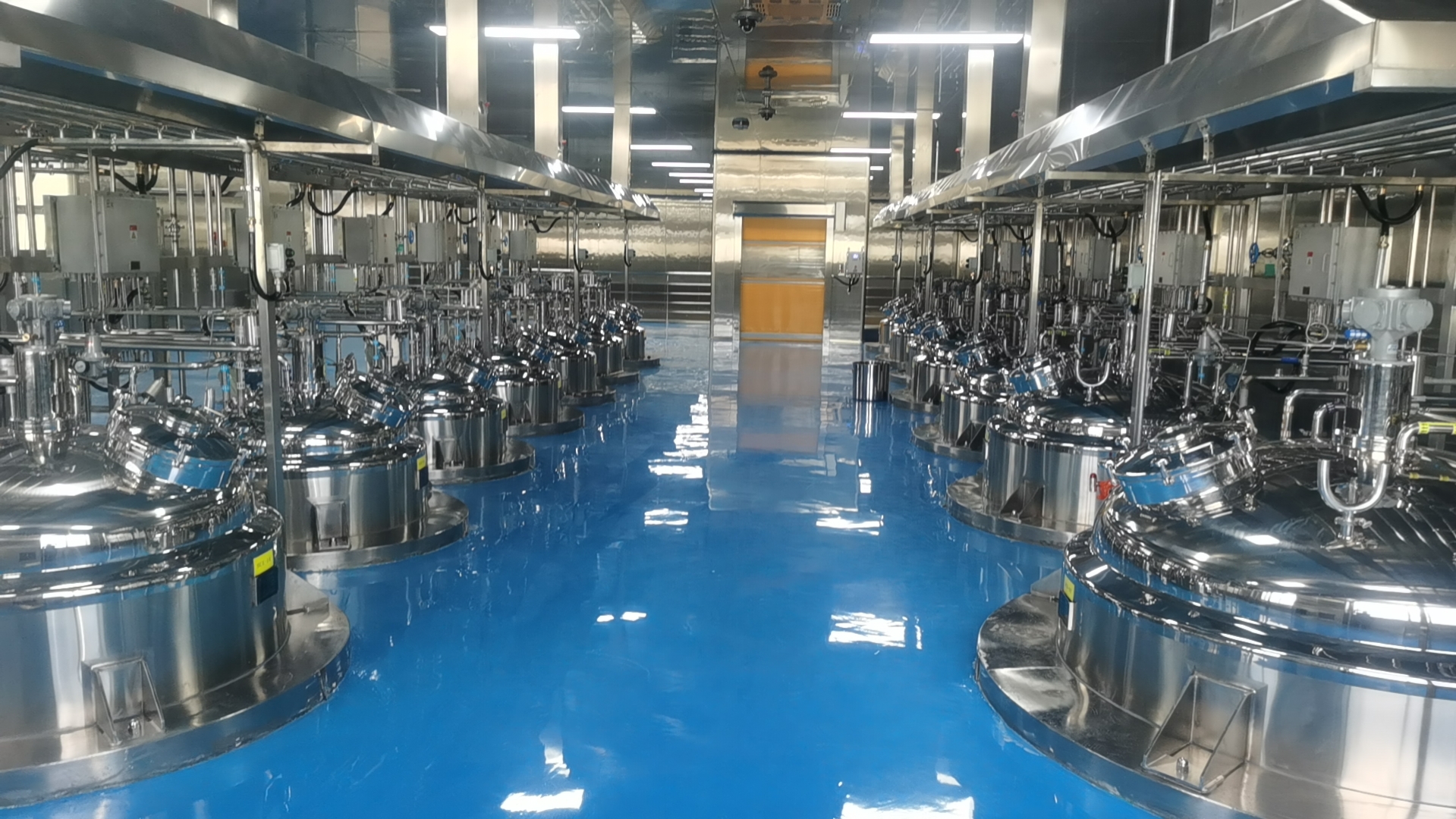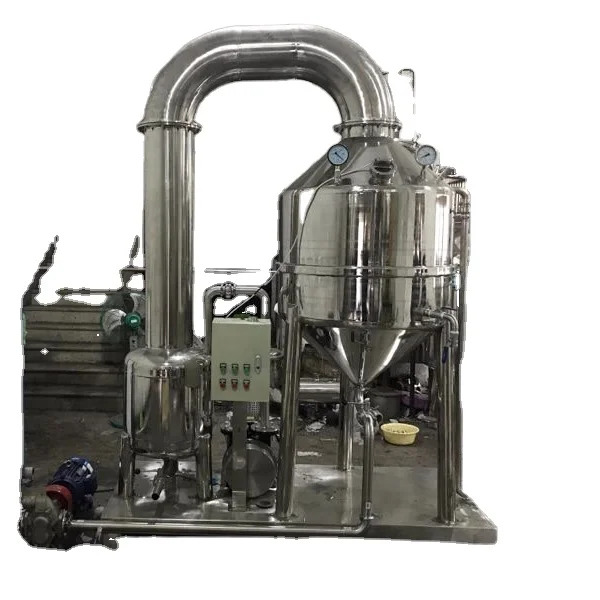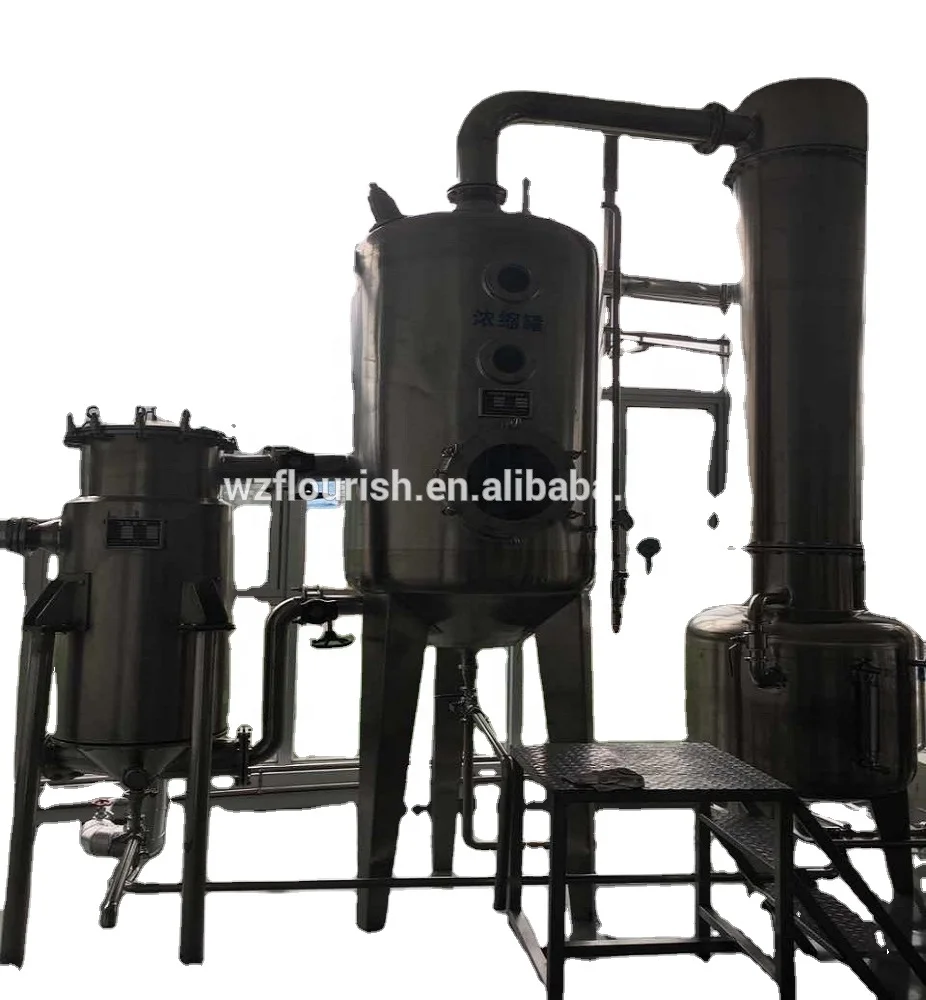
ABOUT
Wenzhou Vince Machinery Science Co., Ltd. was established in early 1980s. Our company covers an area of 6500 square meters and is an independent legal representative firm, possessing rich economic technology strength. Our company is a high tech enterprise and plays an important role in national dairy, foodstuff, pharmacy and machinery industries. We are a beverage machinery supplier.
Since the establishment, our company has mainly engaged in dairy products, foodstuff, beverage machinery, bean products, yellow wine, medicines and fermentation projects. What's more, our company supplies a complete sequence services in manufacturing, installation, test and personnel train, as well as the whole direction service design and consulting service on product project construction or enlargement artistic distribution engineering sets budget.
Innovations in Vacuum Falling Film Evaporator Design
Vacuum falling film evaporators have long been recognized as highly efficient heat exchangers, enabling the separation and concentration of various liquids. They excel in handling heat-sensitive materials, minimizing fouling, and offering high thermal efficiency. Recent advancements in design and technology have further enhanced their capabilities, addressing crucial challenges and expanding their applicability in diverse industries.
Enhanced Heat Transfer Efficiency
One notable innovation has been the development of enhanced heat transfer surfaces. The traditional smooth tubes have been replaced with micro-structured surfaces, such as micro-finned tubes or dimpled tubes. These structures create turbulence in the liquid film, significantly increasing the heat transfer coefficient. This leads to a more efficient use of energy and a smaller evaporator footprint, reducing both operating costs and capital expenditure.
Furthermore, the integration of heat transfer enhancers like static mixers and helical inserts can further improve the mixing and heat transfer within the falling film. These enhancers promote uniform flow distribution and increase the turbulence, resulting in higher heat transfer rates and reduced pressure drop. The optimization of these elements allows for precise control over the evaporator performance and tailored solutions for specific applications.
Advanced Materials and Corrosion Resistance
Innovations in materials science have also contributed to improved performance and durability. The adoption of corrosion-resistant materials, such as titanium, stainless steel alloys, and Hastelloy, has expanded the applicability of vacuum falling film evaporators to handling aggressive and corrosive liquids. These materials offer excellent resistance to chemical attack, minimizing the risk of equipment failure and extending its operating life.
Furthermore, advanced coatings and surface treatments, such as ceramic coatings or electropolishing, provide an additional layer of protection against corrosion, further enhancing the longevity and reliability of the evaporator. This is particularly crucial in applications where aggressive chemicals are involved, ensuring safe and continuous operation.
Improved Process Control and Automation
Modern vacuum falling film evaporators are increasingly incorporating sophisticated process control systems and automation technologies. These systems enable real-time monitoring and adjustments of critical parameters, such as temperature, pressure, and flow rate, leading to optimized performance and reduced operating costs. Advanced sensors and actuators, coupled with intelligent control algorithms, provide precise control over the evaporation process, ensuring product quality and consistency.
Integration of data acquisition and analysis capabilities allows for the collection and analysis of real-time data, providing valuable insights into the evaporator's operation and enabling predictive maintenance. This proactive approach minimizes downtime and ensures reliable performance, maximizing operational efficiency and profitability.
Minimized Environmental Impact
Sustainability is an increasingly important aspect of industrial processes. Vacuum falling film evaporators have evolved to minimize their environmental footprint. Innovations like heat recovery systems and energy-efficient designs contribute to reduced energy consumption and lower emissions. The use of environmentally friendly refrigerants and materials minimizes the potential for environmental harm during operation and disposal.
Furthermore, the integration of waste heat recovery systems allows for the efficient utilization of energy released during the evaporation process. This recovered heat can be used to preheat incoming feed streams or provide energy to other processes, further reducing energy consumption and improving overall plant efficiency.
Expanding Applications
These innovations have expanded the application range of vacuum falling film evaporators. They are now employed in various industries, including pharmaceuticals, food processing, chemical manufacturing, and biotechnology. They are particularly suitable for applications involving heat-sensitive materials, concentrated solutions, and high purity requirements.
The ability to handle a wide range of feed compositions, coupled with precise control over operating parameters, makes vacuum falling film evaporators a versatile tool for various applications. Their adaptability, efficiency, and reliability make them an attractive choice for process engineers seeking to improve product quality, reduce operating costs, and minimize environmental impact.
SUBSCRIBE
INQUIRY





